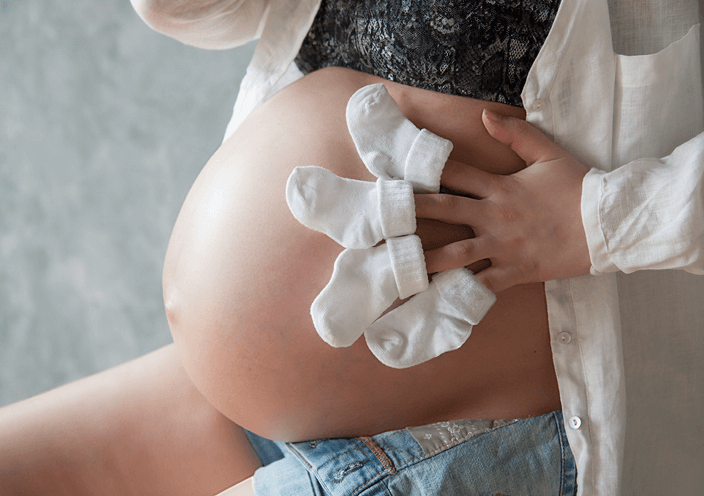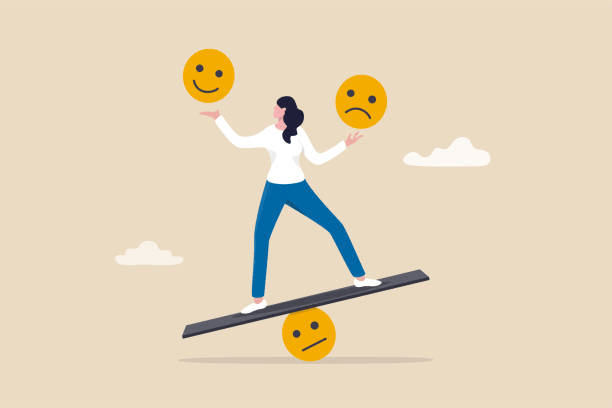First Trimester Pregnancy: A Week-by-Week Guide to Your Body

Starting your pregnancy journey means understanding your body’s changes. The first trimester is key, and knowing what happens can prepare you for a healthy pregnancy. You’ll see big changes, like the fertilized egg implanting and your baby’s organs growing. Learning about these changes can make this time exciting and manageable.
In the first trimester, you’ll notice many physical changes. These can include more trips to the bathroom and sore breasts. But knowing what to expect can make you feel more in charge. You’ll learn about the role of folic acid, your baby’s heart and blood vessel growth, and the development of their tiny hands and feet.
Key Takeaways
- The first trimester is the first 12 weeks of pregnancy, starting from the first day of the last menstrual period (LMP).
- Understanding what happens to your body week by week can help you prepare for a healthy pregnancy.
- Pregnancy changes week by week can be significant, and being informed can help you navigate this time.
- Folic acid intake is critical in the first trimester to prevent neural tube defects.
- Physical changes, such as increased urination and breast tenderness, are common during the first trimester.
- Staying informed about your body’s changes can help you feel more in control during this exciting time.
Understanding Your First Trimester Journey
Starting your first trimester is a big step. You’ll notice many changes in your body. These changes happen from week 1 to week 12 of pregnancy. The fetus grows fast, and so does your body.
You might feel sick, have sore breasts, or feel moody. These are common signs of early pregnancy. It’s normal to feel these ways.
Expect big milestones in the first trimester. The fetus’s organs start to form, and its senses begin to develop. Knowing about these changes helps you prepare for pregnancy’s ups and downs.
It’s important to take care of yourself during the first trimester. Watch for any signs that might mean trouble. Being informed and proactive helps keep your pregnancy healthy.
Drink plenty of water, eat well, and talk to your doctor if you’re worried. They can help with any concerns about symptoms or signs.
Early Signs Your Body Is Changing
As you enter the first trimester, you might notice small changes in your body. A missed period is often the first sign of pregnancy. You may also feel nausea, be very tired, and need to pee a lot. These symptoms come from the hormonal shifts that happen during pregnancy.
Some women see their skin darken around the nipples, inner thighs, armpits, and navel. This is called “the mask of pregnancy.” About half of pregnant people notice more visible veins due to increased blood volume. These changes show your body is adapting to support your growing baby.
Knowing about these early signs can help you get ready for pregnancy’s ups and downs. By following your pregnancy week by week, you’ll know what to expect. Look out for morning sickness, mood swings, and constipation. Being aware of these can help you manage them and have a healthy pregnancy.
Remember, every pregnancy is different, and not all symptoms are the same. But being informed and ready can make the first trimester exciting and full of anticipation.
The First Trimester: What Happens to Your Body Week by Week
As you enter the first trimester, you’ll see big first trimester body changes. These changes can be thrilling and a bit scary. Knowing what to expect can make the journey of pregnancy easier. You might feel first trimester discomforts like morning sickness, tiredness, and mood swings.
The first trimester is when the fetus grows fast. It goes from a tiny embryo to a fully formed baby. Here’s what happens to your body each week:
Weeks 1-4: The Beginning
In these early weeks, the fertilized egg settles in the uterus. The fetus starts to grow. You might not see big first trimester body changes yet. But your body is changing a lot.
Weeks 5-8: Rapid Development
This time is all about fast growth. The fetus’s main organs and senses start to form. You might feel first trimester discomforts like morning sickness and tiredness.
Weeks 9-13: Establishing Pregnancy
By now, the fetus has all its major parts. You might see more first trimester body changes, like a bigger belly and sore breasts.
Every pregnancy is different. Not all women feel the same first trimester discomforts or first trimester body changes. If you’re worried or have questions, talk to your healthcare provider. They can offer personalized advice and support.
Common Physical Changes During Early Pregnancy
In the first trimester, women often see big changes in their bodies. These first trimester experiences can be a lot to handle. But knowing what to expect can make things easier. Morning sickness, tiredness, and sore breasts are common. As pregnancy changes week by week, women might notice their body shape, skin, and hair changing too.
Some common physical changes in early pregnancy include:
- Morning sickness, which can happen at any time
- Fatigue, which can be really tiring and affect daily tasks
- Breast tenderness, which can be uncomfortable and sensitive
- Increased urination frequency, which can be inconvenient and disrupt daily routines
It’s important to remember that every woman’s first trimester experiences are different. Not all women will go through all these changes. But knowing about these changes can help women prepare and seek medical help if needed. As pregnancy changes week by week, staying informed and talking to a healthcare provider is key.
Hormonal Changes and Their Effects
As you navigate the first trimester, you may wonder what happens to your body week by week. Hormonal changes are a big part of this journey. These changes are driven by the increase in estrogen and progesterone levels. These hormones support pregnancy and help the fetus grow.
Common symptoms include morning sickness, fatigue, and mood swings. About 80% of pregnant women get morning sickness, starting between 4 to 9 weeks. Fatigue is also common due to rising progesterone levels.
Other symptoms include breast tenderness and sensitivity, more trips to the bathroom, and changes in food preferences. Mood swings affect up to 50-70% of women in the first trimester. Understanding these hormonal changes helps manage symptoms and ensures a healthy pregnancy.
To manage symptoms, keep a healthy lifestyle. Eat well and exercise regularly. Drinking water and getting enough sleep can help with fatigue and morning sickness. If mood changes or other symptoms worry you, talk to your healthcare professional for help.
Managing First Trimester Discomforts
During the first trimester, you might feel different in your body. You could experience nausea, frequent need to pee, tiredness, sore breasts, and leg cramps. These are common first trimester discomforts.
To deal with these issues, knowing what causes them is key. Eating small meals can help with nausea. A diet rich in fiber can prevent constipation. Drinking lots of water, at least 8-10 glasses a day, is also important.
Here are some tips to handle first trimester discomforts:
- Take breaks to rest and relax
- Do gentle exercises like walking or prenatal yoga
- Get enough sleep to fight fatigue
- Stay away from things that make nausea worse

Understanding and managing first trimester body changes and first trimester discomforts helps you get through this important time. It ensures a healthy start for your baby.
Nutrition and Body Needs
In the first trimester, it’s key to focus on nutrition and body needs. This supports your baby’s growth. As you move through pregnancy, your body changes a lot. A healthy diet is vital for your baby and your health.
Eating a balanced diet with nutrients like folic acid, iron, and calcium is important. You can get these from foods like leafy greens, lean proteins, and dairy. Drinking plenty of water is also key.
Essential Nutrients for Early Pregnancy
Some important nutrients for the first trimester include:
- Folic acid: found in foods like spinach and fortified cereals
- Iron: found in foods like red meat and beans
- Calcium: found in foods like dairy products and leafy greens
By focusing on nutrition, you support a healthy pregnancy. As you go through pregnancy, keep learning about your body’s needs. Adjust your diet and lifestyle as needed.
Foods to Embrace and Avoid
It’s also important to be careful about the foods you eat. Avoid raw meat and fish, as they can be risky. But, fruits and vegetables are great for nutrients and benefits.
Exercise and Physical Activity Guidelines
As you go through first trimester body changes, staying active is key. It helps prevent gestational diabetes, hypertension, and other pregnancy issues. Studies show that moderate exercise can lower these risks. It might also reduce the need for a C-section.
Adding physical activity to your day can boost your first trimester experiences. Start with 10-15 minutes of walking daily. Then, aim for 30 minutes, 3-5 times a week. For new exercisers, keep your heart rate under 150 bpm. After 14 weeks, avoid high-risk activities like skiing and contact sports.
- Weight lifting should be limited to under 25 pounds during the second trimester.
- Recommended weight for light resistance exercises in the third trimester is around 3-5 pounds.
- Women without pre-existing health conditions are generally allowed to engage in moderate activity without heart rate limitations if they were previously active.
Don’t forget to stay hydrated and fueled before exercising. Eat a snack or drink juice 15-30 minutes beforehand. Always listen to your body and stop if you feel any pain. By staying active, you can have a healthier pregnancy and better first trimester experiences.
Understanding Your Changing Body Shape
As you experience first trimester symptoms, your body changes a lot. You might notice changes in your weight, skin, and how you look. These changes are due to early pregnancy signs like bloating, tender breasts, and mood swings.
Some common physical changes in early pregnancy include:
- Bloating and weight gain
- Breast tenderness and swelling
- Darkened skin on the face, known as chloasma or the “mask of pregnancy”
- Changes in skin, such as greasiness or the development of spots
Every woman’s pregnancy is different. Not all will show all these symptoms. But knowing what might happen can help you get ready for pregnancy’s ups and downs. Understanding physical and emotional changes can make the first trimester easier.
As your body changes, you might see a baby bump. This is a big moment in your pregnancy. Take care of yourself, both physically and emotionally. If you have concerns or questions, talk to your healthcare provider.
Mental and Emotional Changes
As you go through your first trimester experiences, you might notice big changes in your mind and feelings. These changes come from the hormones shifting during this time. You could feel more emotional, anxious, or upset, which can be tough to handle. Knowing about these changes can help you get ready for the ups and downs of pregnancy.
Women often feel mood swings, anxiety, and sadness during the first trimester experiences. It’s key to remember that these feelings are normal and can be managed. Pregnancy changes week by week, so it’s important to know what to expect at each stage.
Here are some tips to deal with mental and emotional changes early in pregnancy:
- Stay connected with your loved ones and build a support network
- Engage in regular physical activity to help regulate your mood
- Practice relaxation techniques, such as deep breathing or meditation
- Get enough sleep and maintain a healthy diet
Remember, taking care of your mental health is vital during this time. By staying informed and seeking help when you need it, you can handle the mental and emotional shifts of pregnancy changes week by week. This way, you can have a healthy and joyful pregnancy.
When to Contact Your Healthcare Provider
As you go through the first trimester, knowing what happens to your body is key. You should also know when to seek medical help for symptoms. Morning sickness affects 70-80% of pregnant women. But, if it’s severe or lasts too long, talk to your doctor.
Fatigue, tender breasts, and needing to pee a lot are common too. These symptoms hit 50-90% of women in the first trimester. But, if you have severe belly pain, cramps, or bleeding, call your doctor right away. These signs might mean something serious is going on.
Regular check-ups with your healthcare provider are vital. They help track how your baby and you are doing. You can share any worries or symptoms you have. Your provider will guide you and support you. This way, you can have a healthy pregnancy.
Some symptoms to watch for include:
- Severe abdominal pain or cramping
- Vaginal bleeding or spotting
- Fever above 100 degrees
- Severe sore throat or chest pain
- Persistent headaches or vision changes
Knowing these symptoms and what happens in your body each week helps you care for your pregnancy. This way, you and your baby can have the best outcome.
Conclusion: Embracing Your First Trimester Journey
Starting your first trimester is a special time. Your body and mind are changing in amazing ways. This early stage is key for a healthy pregnancy and welcoming your baby.
Even though changes can feel tough, know that each step brings you closer to your baby. Morning sickness, mood swings, and tiredness are common. But, you’re not alone.
Reach out to your healthcare team, family, and friends for support. There’s a lot of helpful information out there. By listening to your body and staying informed, you can enjoy this journey. You’re on your way to a wonderful experience.






